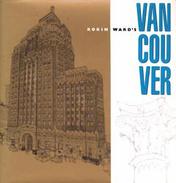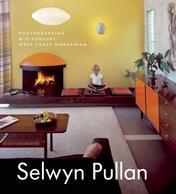Architecture


SUN TOWER
There was a solitary light on high up in the Sun Tower on the Sunday evening when I finished this drawing. A spectral newsman perhaps, shirt-sleeved as if in the tropics, clattering out Monday's story on an old typewriter. In the gloaming, the city lights came on. Trolley buses hummed along the empty streets. The run-down hotels, the old warehouses, that lonely light-the area took on the ambience of fifty years ago.
Many stories were once written here. The Vancouver Sun was published in this building from 1937, leaving its name and memories when it crossed the Granville Bridge to the new Pacific Press building in 1964.
Publisher Louis D. Taylor wrote himself into the city's history books with this colossal structure, a long term as Vancouver's mayor and the subsequent financial trouble that forced his paperthe Vancouver World, for which this tower was builtto move out in 1917. "There is no limit to the possibilities of the city," he once declared, his skyscraping newspaper tower evidence of Vancouver's growing metropolitan status.
There's a Citizen Kane ring to this story, and to the look of this building. With a facade as bold as a banner headline and a tower that punctuates the Beatty/Pender corner like a giant exclamation mark, this building was designed to be seen throughout its newspaper's circulation area-the free press and the publisher's prominence symbolized in architecture.
In 1912, when it was built for the Vancouver World, the Sun Tower was, briefly, the tallest in the British Empire. It may also have been the most risque. The facade is embellished with naked caryatids, sensuously posed, who support the cornice above the arcaded gallery halfway up the building.
OLD COURT HOUSE
Western civilization's concept and practice of law and order, as we know it today, has its origin with the Greeks and Romans. The style of their buildings was considered an appropriate manner in which to represent the dignified panoply of the law, banks and government institutions. Classical architecture too has its law and order, an unwritten constitution of harmony and proportion. Its laws are easily broken, its order difficult to attain.
Architect Francis Rattenbury, who in 1906 won the competition for the Court House with this neoclassical design, didn't break any laws here. But he didn't quite achieve the order which lifts a classical composition above the ordinary. He played all the right notes - a facade colonnade, columned and pedimented portico flanked by imperial lions, and a Palladian rotunda - to serenade the local judiciary with a flattering tune. But he lacked the skill and rigour, that hard edge of discipline and restraint, that sounds the chord of perfect classical proportion. The interior of the rotunda is more deftly handled than the building's outside detail.
Rattenbury's late-Victorian English sensibility was more at home with the romantic concoctions at which he excelled - the provincial Parliament Buildings and the Empress Hotel in Victoria, for example. But his Court House makes a fine art gallery, which it is today - a romantic and mildly subversive irony, given that art should challenge, as much as establish, order.
The most likable feature of the Court House is the two lions that flank what was once the main entrance on Georgia Street. To enter the building today, you go in the back door: that pleasurable sense of importance, of both the building's status (as the Vancouver Art Gallery) and one's approach to it, has unfortunately been lost in the change of use. The lonely lions guard a purposeless portico, a poor reward for their patience.
They were carved in 19 10 by a Scottish artisan, John Bruce, employed by McDonald (stone cutters) of Main Street. Bruce modelled them after those by Sir Edwin Landseer, erected in 1867 in Trafalgar Square. Landseer's London lions were popular beasts, not only in Vancouver. Copies can still be found outside public buildings throughout the former British Empire.






